
UTAR-NUS New Village Collaborative Project
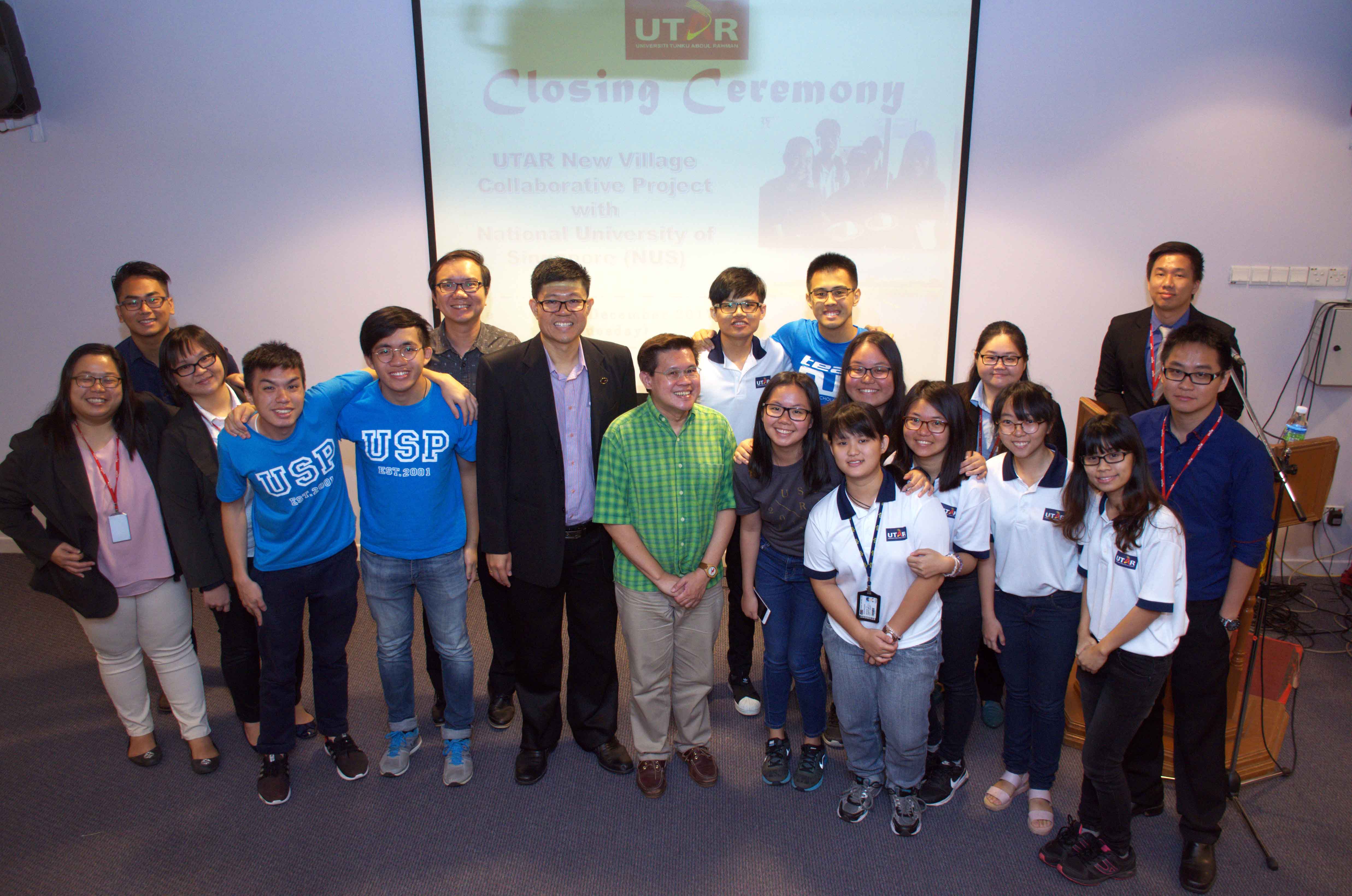
Prof Choong (seventh from left) and Prof Teo (centre) posing with participants and staff
The UTAR New Village Collaborative Project, co-organised with the Department of Soft Skills Competency (DSSC), saw another successful collaboration with the National University of Singapore (NUS). Held from 11 to 17 December 2017, the project ended with a closing ceremony on 19 December 2017 at the Kampar Campus.
Present at the closing ceremony were UTAR Vice President for Student Development and Alumni Relations Prof Dr Choong Chee Keong, NUS University Scholars Programme (USP) Deputy Director Assoc Prof Dr Albert Teo Chu Ying, DSSC (Kampar Campus) Head Hee Chwen Yee, participants of the project and staff.
The week-long project was conducted in two villages located in Penang, namely Kampung Sungai Udang and Kampung Baru Valdor, which served as a platform for the participants to learn various aspects of the villages’ assets, such as the lifestyle, history, culture, job opportunities, economic development, social structure, community assets and cultural values.
The participants were divided into groups and each group visited one village. The group that visited Kampung Sungai Udang consisted of NUS students Chua Yu Song, Pang Chee Him, and Jeremy Jee De Sheng; and UTAR students Lee Pei Yee and Ching Yong Chian. Kampung Baru Valdor was visited by NUS students Lim Rui and Kathy Tan Kia Sim; and UTAR students Lai Yan Ni, Sabrina Chew Hui Xin and Lee Shean Yi.
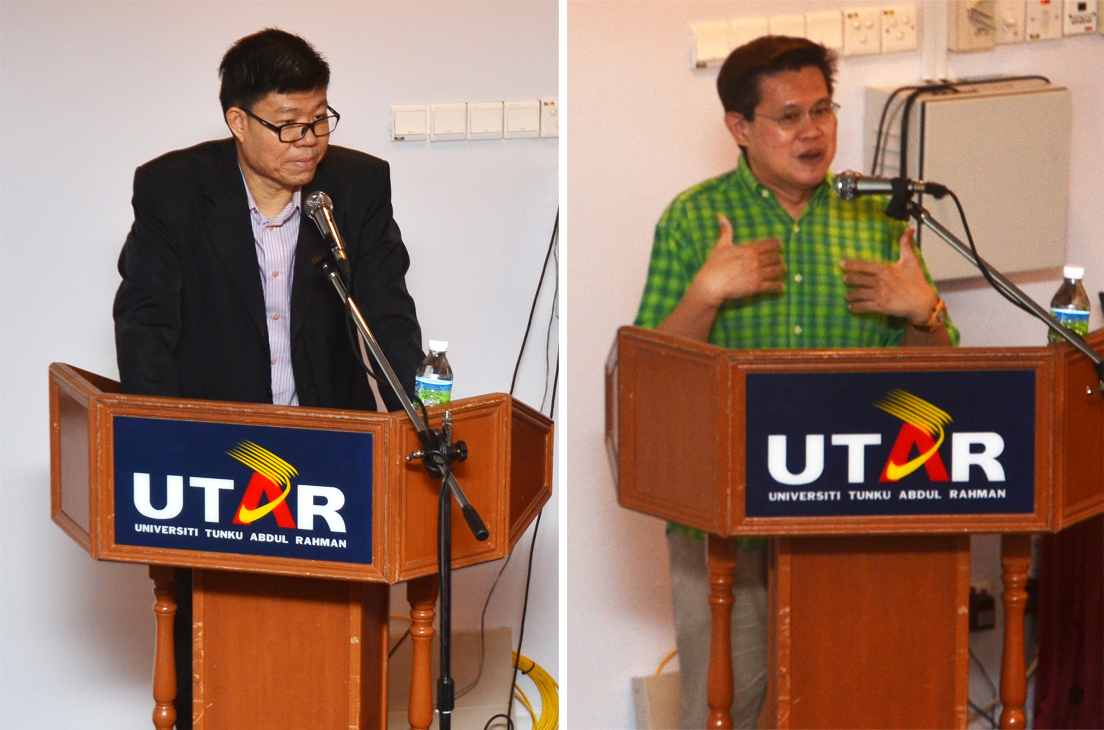
From left: Prof Choong and Prof Teo delivering their closing remarks
In his closing remarks, Prof Choong mentioned, “The collaborative project represented a significant stride in promoting mutual cooperation between the two institutions and has paved ways for further strategic alliances as well as dynamic learning programmes on a win-win basis. I am confident that the programme will grow from strength to strength.”
He added, “I congratulate all the participating students because I believe this project not only provided you with an interactive learning and immersion experience but also helped broaden your outlook in thinking more rigorously about community work. As you learn of the ways to communicate with people from different communities, you will gain fresh perspectives on the historical roles and significance of new villages in Malaysia. I hope you have learnt much and it was surely a very educational experience to learn from the villagers.”
Meanwhile, Prof Teo in his speech thanked UTAR for hosting them once again and expressed gratitude and appreciation for providing this opportunity to learn about the concept of new villages.
“This was a wonderful learning experience for our students and they benefitted greatly from it. They had the opportunity to learn about the history of the Chinese communities in Malaysia, from which these new villages emerged. Also, while visiting the villages our students were able to practise their social research skills through the interview session they conducted and the village activities they participated in. They also learnt about the community spirit, which is rare in Singapore and hence made the experience even more valuable for our students and taught them on appreciating the closely-knitted relationship the villagers have with each other. I hope with these lessons and experiences, the students can replicate this precious value of kinship and friendship in their own community.”
Towards the end of his speech, Prof Teo also extended invitations to the UTAR students to participate in their social entrepreneurship and social innovation programmes to learn about developments in the Singaporean context.
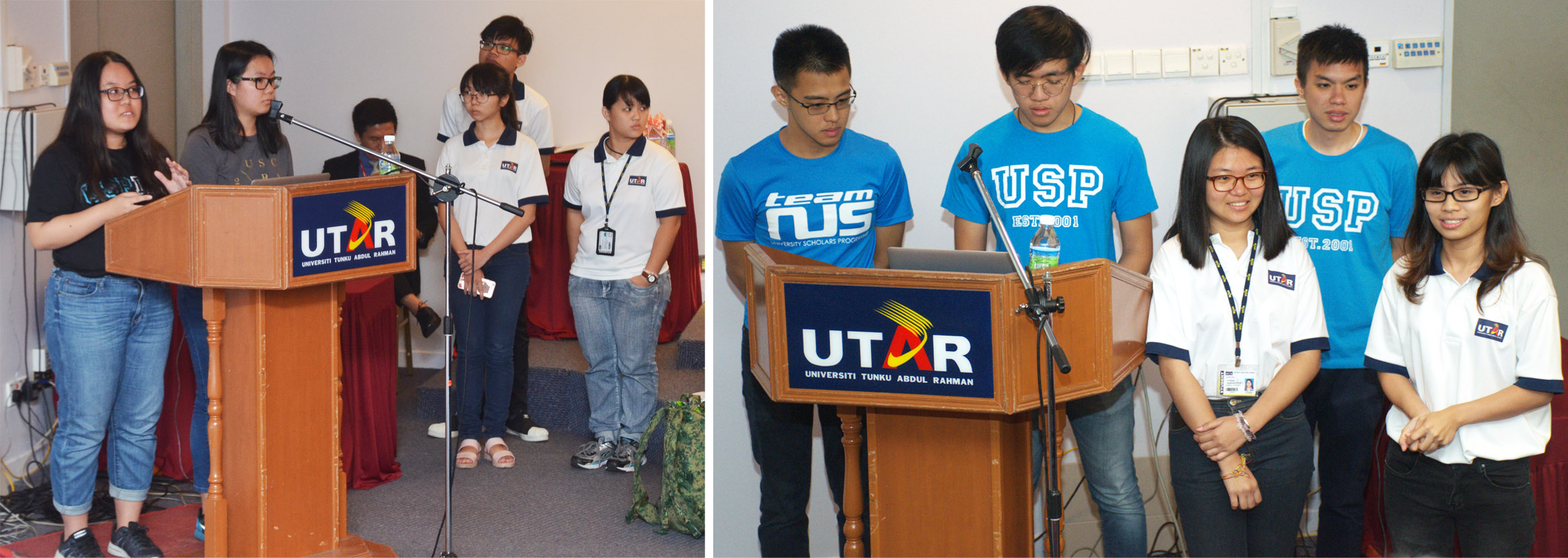
The groups presenting their findings and experiences
Each group also had the opportunity to present their findings and share their experiences gained throughout the project.
“The project was certainly a good experience and I was motivated by Malaysia’s natural beauty. Although life is much simpler in the village, I believe the surrounding nature is a great way to learn to be more appreciative with the conveniences we have in the urban cities,” said NUS student Chua Yu Song.
“Kampung Sungai Udang provides a good exposure about the fishing industry because the village’s main economic activity is fishing. Being there, I was able to understand how the industry affects the lives of the villagers and the structure of the village. It was a glimpse into their economic background and the experience was truly unique,” said NUS student Pang Chee Him.
The closing ceremony ended with a certificate presentation by Prof Choong to the participating students, followed by souvenir exchanges between Prof Choong and Prof Teo.
UTAR New Village Collaborative Project collaborates with local foundations, companies, and foreign partnering universities to participate in the village community project. The activities involve social study, research, cultural exchange, sport-friendly matches and beautification projects for schools and homes. Collaboration with NUS was formed in 2012 and saw the first group of NUS USP students visited five new villages in Perak. The objective was to study the social and economic development in the new villages; collect information about the histories (narratives) and cultures of the new villages; and to identify and map the community assets of the new villages as well as to generate possible social entrepreneurship and community development ideas for the new villages.
Read more about past collaborative projects through the links below:
UTAR and NUS collaborate on community project
New Village Collaborative Project a hit again
New Village Collaborative Project with NUS
Fourth UTAR-NUS New Village Collaborative Project
Fifth UTAR-NUS New Village Collaborative Project
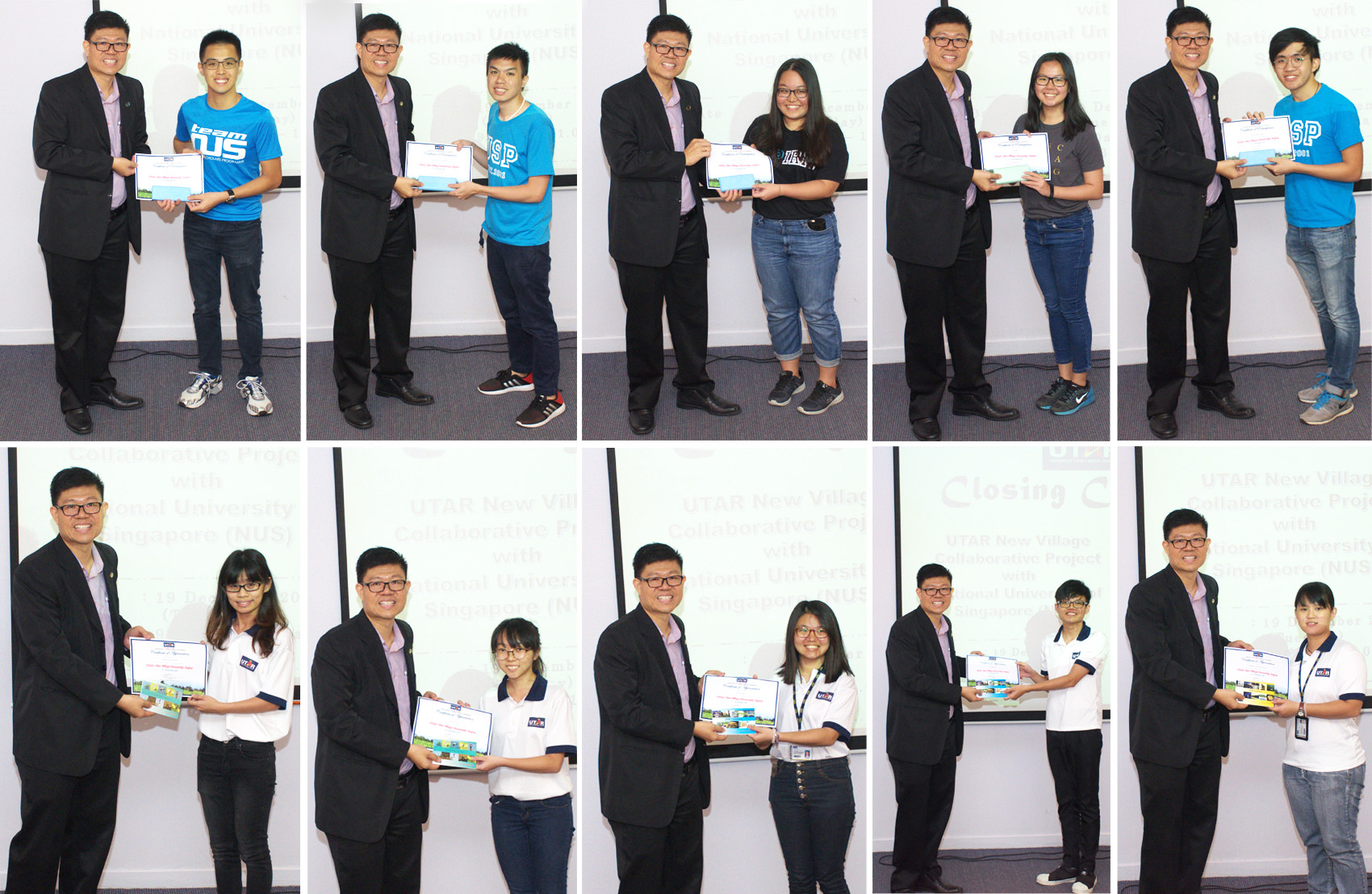
Prof Choong (left) presenting certificates to all the participants
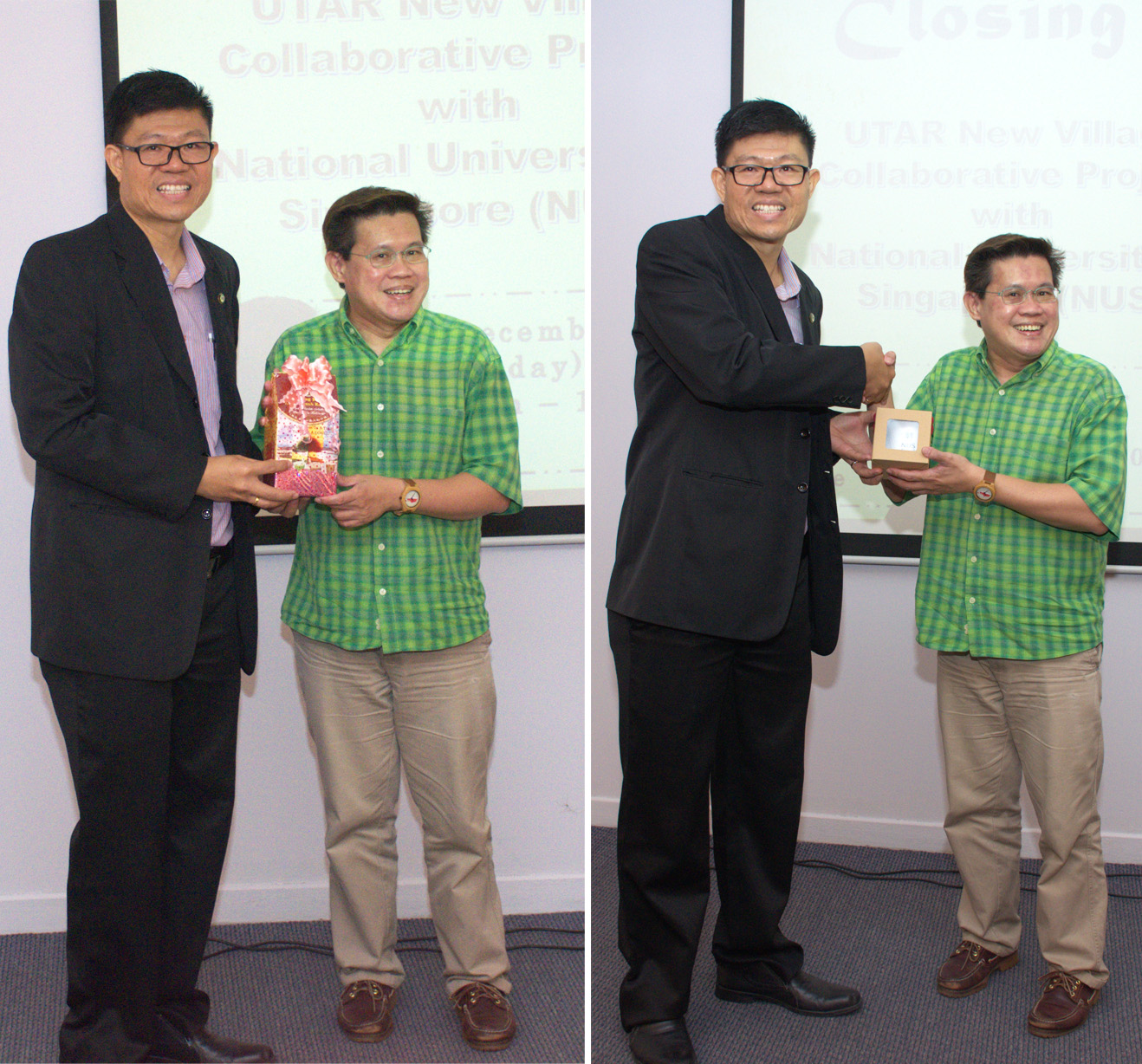
Prof Choong and Prof Teo (right) exchanging souvenirs
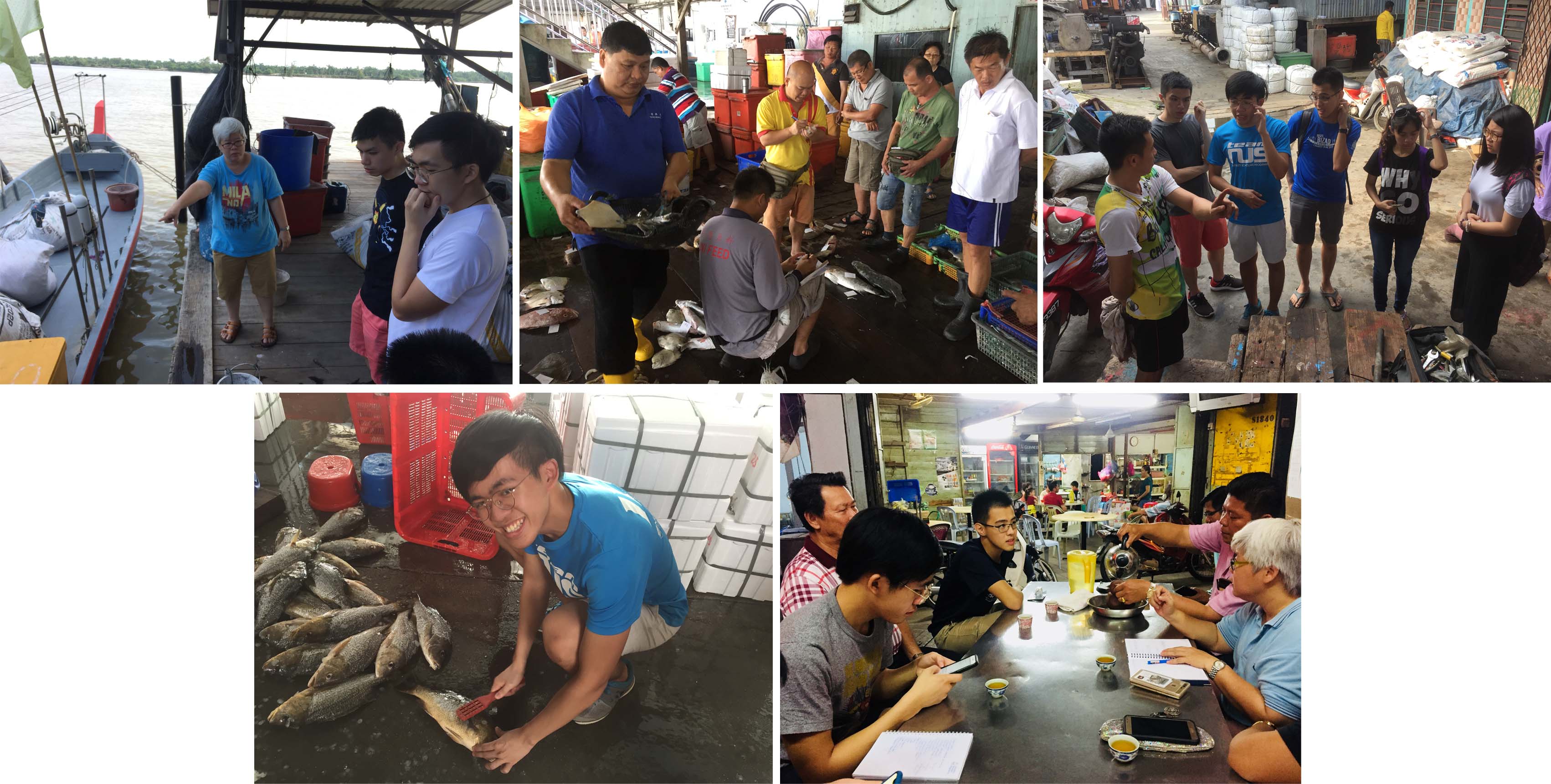
Participants interviewing villagers of Kampung Sungai Udang
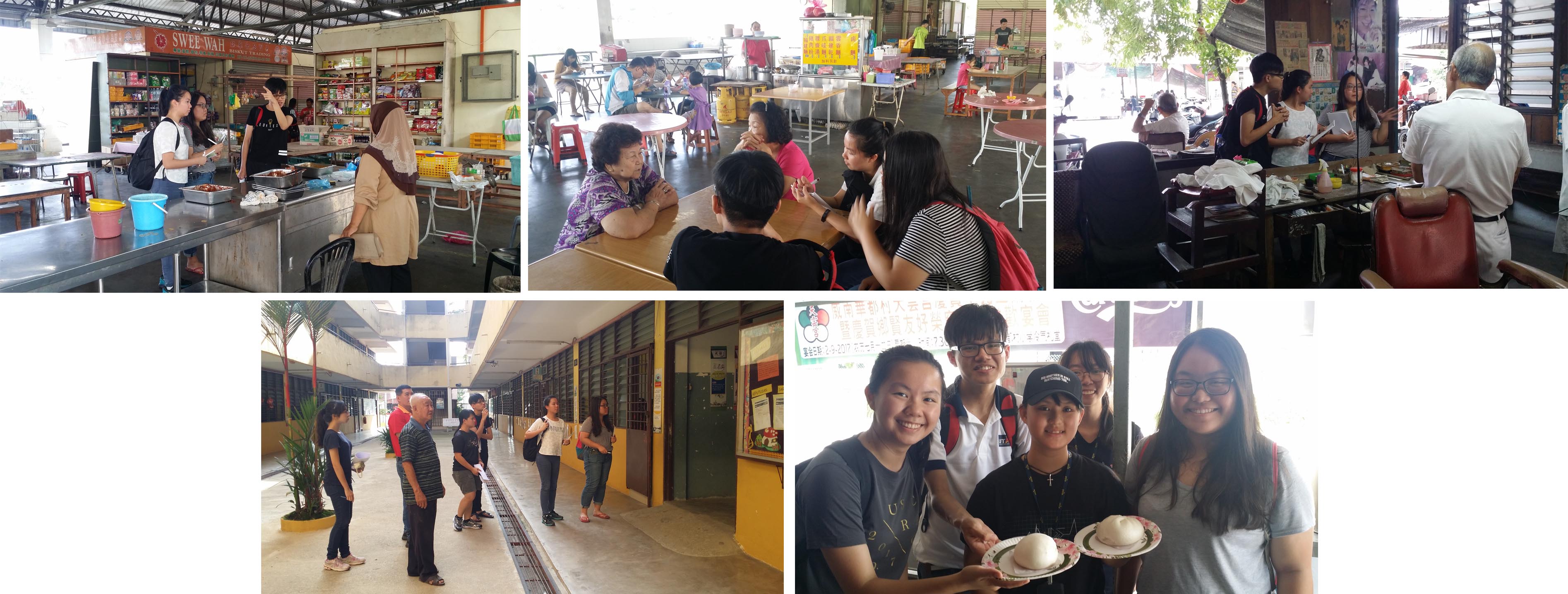
Participants visiting Kampung Baru Valdor and enjoying pau making session (clockwise, fourth picture)
© 2019 UNIVERSITI TUNKU ABDUL RAHMAN DU012(A).
Wholly owned by UTAR Education Foundation Co. No. 578227-M LEGAL STATEMENT TERM OF USAGE PRIVACY NOTICE